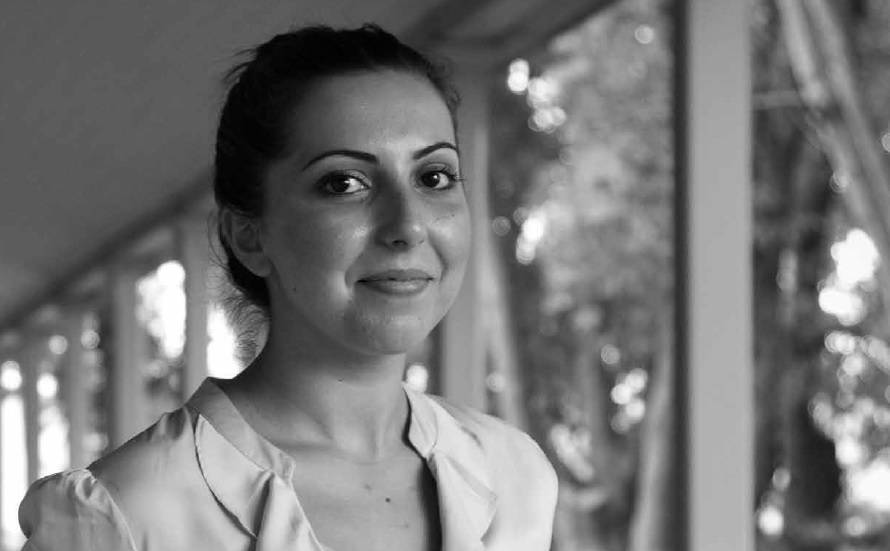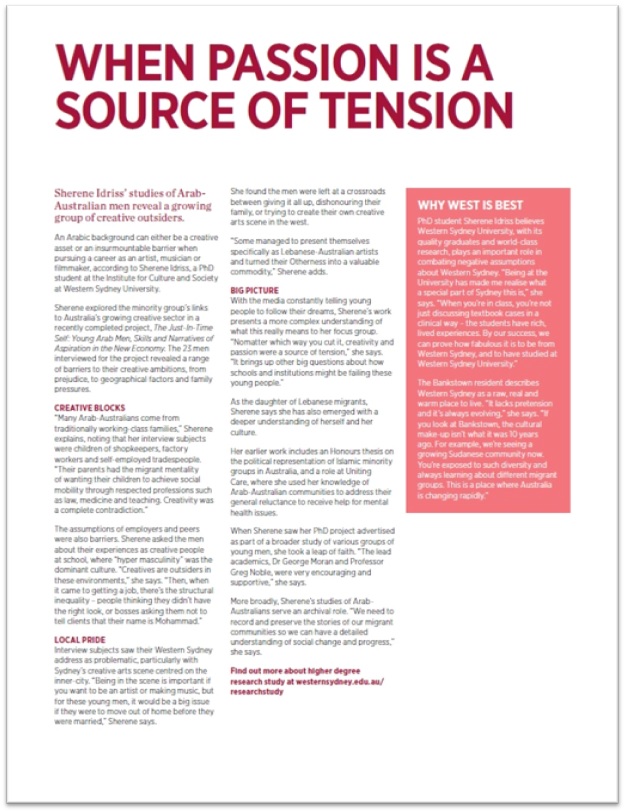When Passion is a Source of Tension

An Arabic background can either be a creative asset or an insurmountable barrier when pursuing a career as an artist, musician or film-maker, says Sherene Idriss, PhD student at the Institute for Culture and Society.
Sherene explored the minority group’s links to Australia’s growing creative sector in a recently completed project, 'The Just-In-Time Self: Young Arab Men, Skills and Narratives of Aspiration in the New Economy'. The 23 men interviewed for the project revealed a range of barriers to their creative ambitions, from prejudice, to geographical factors and family pressures.
Creative blocks
“Many Arab-Australians come from traditionally working-class families,” Sherene explains, noting that her interview subjects were children of shopkeepers, factory workers and self-employed tradespeople. “Their parents had the migrant mentality of wanting their children to achieve social mobility through respected professions such as law, medicine and teaching. Creativity was a complete contradiction.”
The assumptions of employers and peers were also barriers. Sherene asked the men about their experiences as creative people at school, where “hyper masculinity” was the dominant culture. “Creatives are outsiders in these environments,” she says. “Then, when it came to getting a job, there’s the structural inequality – people thinking they didn’t have the right look, or bosses asking them not to tell clients that their name is Mohammad.”
Local pride
Interview subjects saw their Western Sydney address as problematic, particularly with Sydney’s creative arts scene centred on the inner-city. “Being in the scene is important if you want to be an artist or making music, but for these young men, it would be a big issue if they were to move out of home before they were married,” Sherene says.
She found the men were left at a crossroads between giving it all up, dishonouring their family, or trying to create their own creative arts scene in the west. “Some managed to present themselves specifically as Lebanese-Australian artists and turned their Otherness into a valuable commodity,” Sherene adds.
Big picture
With the media constantly telling young people to follow their dreams, Sherene’s work presents a more complex understanding of what this really means to her focus group. “No matter which way you cut it, creativity and passion were a source of tension,” she says. “It brings up other big questions about how schools and institutions might be failing these young people.” As the daughter of Lebanese migrants, Sherene says she has also emerged with a deeper understanding of herself and her culture.
Her earlier work includes an Honours thesis on the political representation of Islamic minority groups in Australia, and a role at Uniting Care, where she used her knowledge of Arab-Australian communities to address their general reluctance to receive help for mental health issues.
When Sherene saw her PhD project advertised as part of a broader study of various groups of young men, she took a leap of faith. “The lead academics, Dr George Moran and Professor Greg Noble, were very encouraging and supportive,” she says.
More broadly, Sherene’s studies of Arab-Australians serve an archival role. “We need to record and preserve the stories of our migrant communities so we can have a detailed understanding of social change and progress,” she says.
Posted: 28 September 2015.
